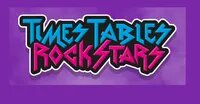
Intent
At St Kentigern’s Catholic Primary School we believe that, from a very early age, mathematics is a vital part of children’s development throughout school. A high-quality mathematics education provides a foundation for understanding the world, the ability to reason mathematically, an appreciation of the beauty and power of mathematics, and a sense of enjoyment and curiosity about the subject. We strive to give children the chance to believe in themselves as mathematicians and develop the power of resilience and perseverance when faced with mathematical challenges. Children will make rich connections across mathematical ideas to develop fluency, mathematical reasoning and competence in solving increasingly sophisticated problems. They will become fluent in mathematics that can be recalled quickly and transferred and applied in other subjects.
We use a teaching for mastery based approach because children’s chances of success are maximised if they develop deep and lasting understanding of mathematical procedures and concepts.
Implementation
In KS1 and KS2 we follow the White Rose scheme of learning in order to ensure that our children have full coverage of the Mathematics National Curriculum and to allow our pupils to build upon topics; embedding concepts. The White Rose approach:
- Puts numbers first: the scheme has number at its heart, because confidence with numbers is the first step to competency in the curriculum as a whole.
- Puts depth before breadth: reinforces knowledge again and again.
- Encourages collaboration: children can progress through the scheme as a group, supporting each other as they learn.
- Focuses on fluency, reasoning and problem solving: it gives children the skills they need to become competent mathematicians.
Children are taught through clear modelling and have the opportunity to develop their knowledge and understanding of mathematical concepts. The mastery approach incorporates using concrete objects and manipulatives, pictures, words and numbers to help children explore and demonstrate mathematical ideas, enrich their learning experience and deepen understanding at all levels. All children are catered for within the maths lessons, ensuring that the teacher and support staff offer the necessary support and challenge for each individual to make progress.
We ensure that mathematics is taught in engaging lessons using appropriate maths manipulatives to aid and support our pupils in their learning. We aim to encourage the deepest of learning for our children so that their knowledge can be transferred and applied in many contexts including other subjects and their everyday lives. Reasoning and problem solving are integral to the activities children are given to develop their mathematical thinking.
We aim to ensure that the three core areas of the National Curriculum are covered in our lessons: fluency, reasoning and problem solving. We aim to offer opportunities for varied and frequent practice of maths skills with a focus on the ability to recall and apply their knowledge quickly and accurately. Mathematical vocabulary is a vital part of each lesson and the pupils need to be able to understand this in order to make links and connections with other areas of this subject. We hope to build confident mathematicians who have a love of maths, good problem-solving skills and a resilience that they can use in all aspects of their learning and day-to-day lives.
Mastering Number
In EYFS, the Mastering Number Programme forms the daily maths lesson.
In Key Stage 1, a daily Mastering Number session is taught in addition to the daily maths lesson.
This has been developed by the NCETM and the purpose of the Mastering Number Programme is that all children will:
- Develop good number sense
- Have automaticity in additive facts
It looks deeply into mathematical relationships, working at a pace so that the needs of all children are met.
KS2 Daily Maths Meetings
In KS2, children take part in a daily mathematics meeting lasting 10-15 minutes.
It is addition to the daily mathematics lesson and uses songs, chants, guessing games and hands-on activities to inspire children’s interest in and enjoyment of maths and develop their fundamental maths skills. They key purpose is to develop fluency and confidence with the skills and understanding associated with basic number and calculation routines for each year group.
Impact
Through our mathematics curriculum we aim to show a clear progression in work throughout school and enable all children to:
- Use and apply the skills and knowledge learnt and to transfer these to other subjects and everyday life.
- Have an enjoyment of mathematics and relish solving problems and puzzles.
- Build up resilience and perseverance which will be beneficial in all areas of children’s lives.
- Reach their mathematical potential by being consistently challenged at an appropriate level.

